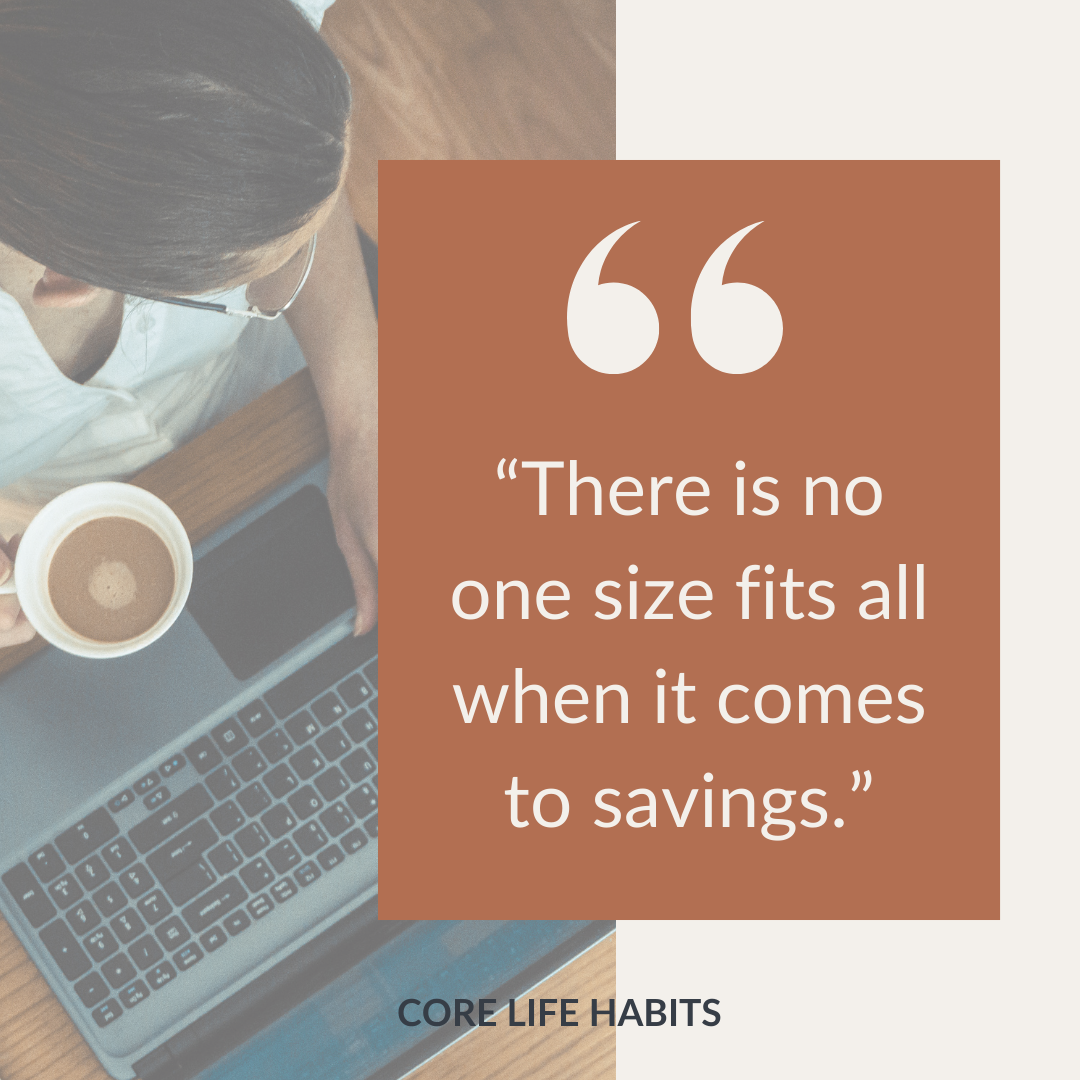How To Save Money From Salary
Saving money is a crucial aspect of everyone’s financial well-being. It’s the most desired aspect of finances that people share with me that they want. To save! We just want to be able to keep SOME of the money that we earn. It provides a safety net for life's uncertainties, instills a sense of security, and enhances peace of mind. While the benefits of saving money are plentiful, saving effectively from our paychecks can sometimes be more difficult than it sounds. It requires discipline and healthy financial habits. In this post, we'll explore the importance of saving, how much to save from your salary, and practical tips to help you save each month consistently.
How To Save Money From Salary
In the United States, a surprising percentage of individuals lack sufficient savings to cover emergency situations. In a recent survey, 57% of Americans felt uncomfortable with the amount of savings they have. This makes it all the more important to emphasize the need for a robust savings plan. Anyone remember the days of covid waiting for a stimulus check to help you pay bills and pick up groceries? Setting aside a portion of your salary not only ensures financial security but also provides a buffer for when the world throws you for a tailspin! It is an essential step toward achieving your financial goals and building an emergency fund to safeguard against life's uncertainties.
How Much Money To Save From Salary
Determining the right amount to save from your monthly salary is crucial and different for everyone. It depends on the goal, the pace of that goal. There is no one size fits all when it comes to savings. However, having purpose behind the savings is key! Saving just to save isn’t the worst thing in the world, but having purpose and intention behind where your dollars are going ensures you’re on the right path for you!
Before getting started, I encourage everyone to eliminate all their consumer debt before saving anything beyond a $1,000 starter emergency fund. Once you get past your consumer debt, then I encourage saving up 6 months worth of your monthly living expenses.
Once you’ve created your 6 month emergency fund, the amount again depends on the goal. One approach is to save the exact amount you were paying towards your debt minimum payments. SO, if your payment towards your car, credit cards, and student loans totaled up to $1,000 a month, save that $1,000!
One other great way you can approach this is by setting a percentage. For instance, I encourage everyone to be saving 15% of their gross income towards their retirement. However, maybe you’re working towards some shorter term goals. Determining the right percentage depends on what you’re saving for, how much it costs, and when you’re trying to pay for that particular expense. But, what’s great about setting a percent is that when your income increases, you’re still saving an appropriate amount in ratio to what you’re making!
Tips on How To Save Money From Your Salary
So how do we logistically go about all this? Saving sounds great, but how do we make it happen? Here are some tips I have to help make this goal into a reality!
Create a Budget Plan
If you’ve been following me for any period of time, you know I am ALL about the budget! Start by evaluating your monthly expenses. List out all your fixed bills, when they’re due, and how much is due. Then assess your variable (essential) spending. Think things like gas and groceries. Once you’ve established all your necessities being covered, you can see how much is left over from your income. Creating a detailed budget plan provides a clear overview of where your money is going and helps identify how much is available to save with where you are today.
Automate Your Savings
This is my personal fav! Set up an automatic transfer with fixed deposits to your savings account each month. We all live extremely busy lives, so the more you can automate the healthy habits in your life, the better! You can either set this up through your bank or through the portal in which you receive your paychecks from work. This ensures that a portion of your salary goes directly into savings before you have a chance to spend it. Automation simplifies the saving process and makes it a consistent habit without missing a beat.
Utilize Budgeting Apps
There is nothing wrong with pen and paper or spreadsheets. I use spreadsheets with my clients all the time! However, taking advantage of technology we have available to us can make things simple and easily accessible. Using budgeting apps that help track your spending, set financial goals, and provide insights into your financial habits can be so helpful! Many apps also offer features to automate savings, making it easier to stay on track. My personal favorite is the everydollar app.
Be Strategic about WHERE you are Saving
Depending on what the goal is, Money Market Accounts, High Yield Savings Accounts, and Mutual Fund Investments are just a few places you can park your money that’ll earn you more than pennies in your savings account. If you are working on short term savings, (0-3 years), I suggest a high yield savings or money market account. You can find these online or at your local banks. Be sure to look into the requirements such as the minimum balance required, withdrawal frequency and amounts, etc. If the goal is more long term (think retirement, saving for your kids college, etc.), an investment option would be a great fit since you’ll have more time to see the returns! Be sure to connect with a trusted professional in your area who can help you strategize your investment plan to your exact goals!
Pay Off Debt Strategically
As I said earlier, this is my #1 priority before starting your savings plan! When we have debt payments, this is taking away from your monthly income that allows you to save in the first place! My rule of thumb is to utilize the debt snowball method (paying off smallest to largest balance) to help you free up your minimum payments quickly and roll that cash to make bigger payments on your bigger debts. This can significantly impact your overall financial health, freeing up more money for savings and reducing the burden of interest payments.
Be Precatious of your Spending
The way we spend money can be easily influenced by our environment, and short term desires, or current events going on in our lives. And with online shopping these days, it’s that much easier to spend money! Cultivating the habit of mindful spending takes digging deep into the purpose behind your spending, and adjusting your lifestyle. Before making a purchase, ask yourself if it aligns with your priorities and financial goals. Spending isn’t a bad thing, but if it’s inhibiting you from keeping any portion of your money in your pocket, it’s no bueno! Avoiding impulse buying and staying aware of your spending can contribute significantly to your savings.
Stay weary of Credit Card Usage
As I’ve shared before, I’m not the biggest fan of credit cards. I hardly ever meet anyone who’s winning the game of paying off their cards every month and earning the benefits. Most people tend to carry a balance and spend more than what they have or spend before they even have the money. This leads to being trapped in monthly payments with high interest rates on top of it! Avoid spending on credit cards and spend with only the cash you have can drastically change how much you spend and what you spend on, helping you save more!
Evaluate Living Expenses Regularly
Even though these are fixed expenses, they do have the capability of changing! Periodically review your living expenses to identify areas where you can cut costs. If your internet bill has increased, switch plans or call your service provider. Review your insurance to see if you can find the same coverage for less. Negotiate bills, explore more affordable alternatives, and ensure that your these necessities aren’t costing you more than what they have to.
Saving money from your salary is a key component of a sound financial plan and a bright future! By following these tips and incorporating them into your lifestyle, you can build a robust financial foundation, achieve your goals, and ensure a secure future. Remember, saving is not just about the present; it's an investment in your future financial well-being.
Do you have savings goals and want more support nailing down the details of your plan? Let’s work together in helping you set up a plan for success!





